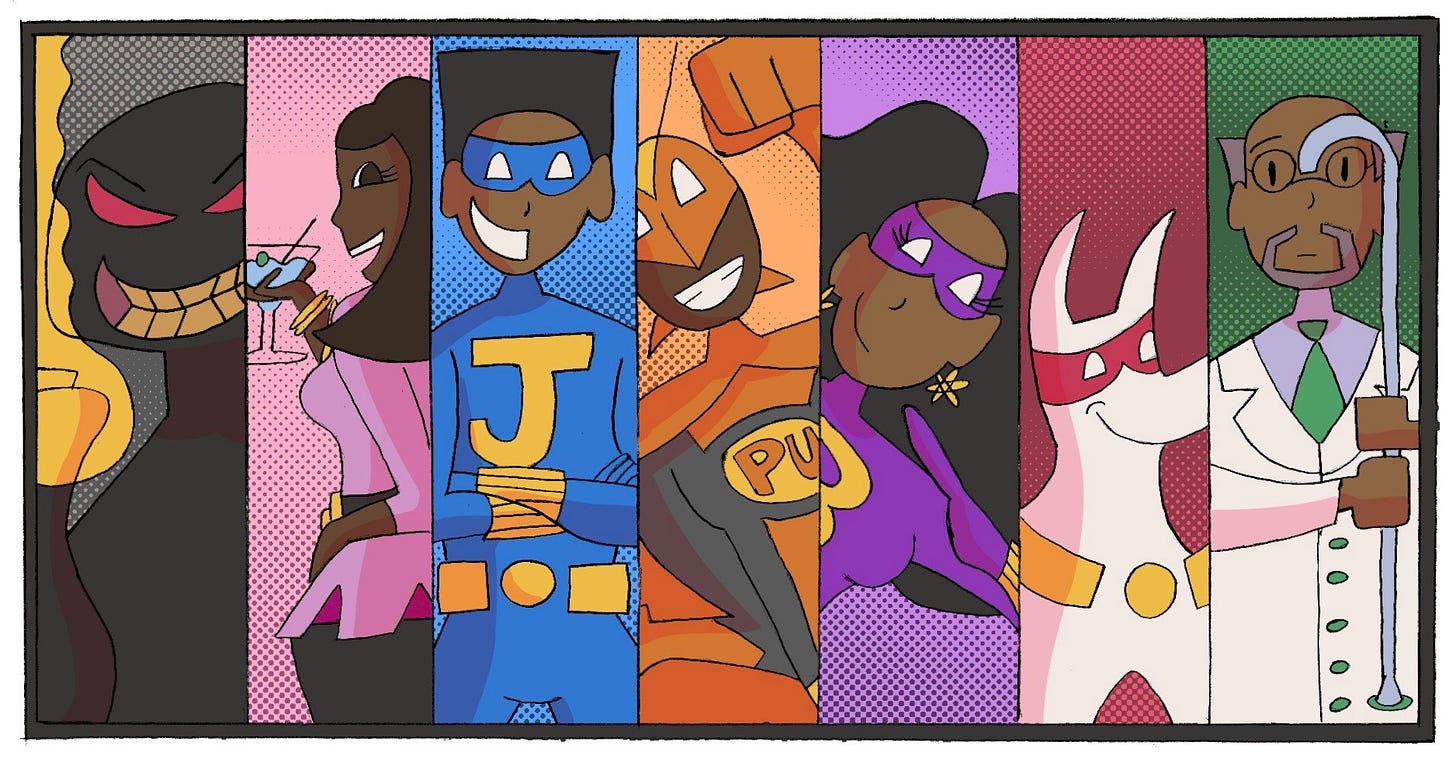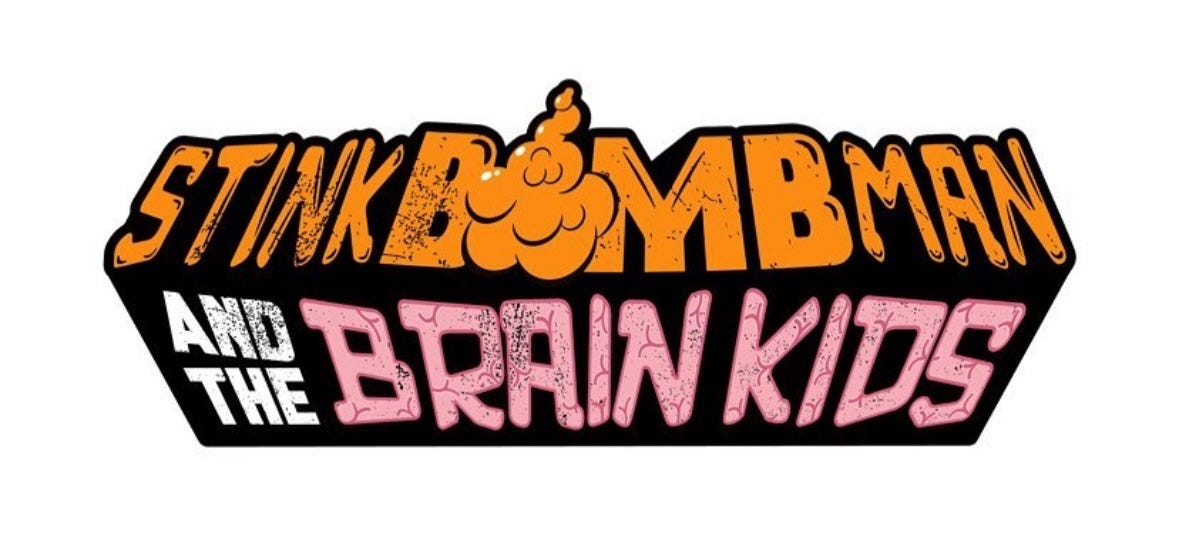When it comes to storytelling, few people embody versatility like Jaylen Christie. An award-winning writer, public relations practitioner, and comic book creator, Christie has carved a space for himself at the intersection of culture, communication, and creativity. Whether he’s crafting essays on race and representation, leading communications for major brands, or sketching the heroes of his own imagination, his work is always guided by purpose.
Christie’s career spans collaborations with household names including The Walt Disney Company, Sodexo, Massey Services, Baker Barrios Architects, and The Salvation Army. In his role as a communications strategist, he develops campaigns that not only reach audiences but also resonate with them, a skill that has earned him industry-wide recognition. His accolades are numerous: Black Enterprise named him a B.E. Modern Man, he is a two-time Hermes Creative Award winner, and he has also received honors such as the MarCom Award, dotCOMM Award, PR News Diversity Leader Award (2021), and the Orlando Business Journal’s 40 Under 40. Most recently, the Public Relations Society of America’s Sunshine District chapter recognized him as Trailblazer Professional of the Year in 2022.
Beyond PR, Christie has made his mark in media and pop culture. His essays have appeared in outlets like The Grio and Blavity, where he has tackled issues of race, diversity, and inclusion with both candor and clarity. A regular speaker at events such as San Diego Comic-Con, Christie is also the author and illustrator behind the comic book Stink Bomb Man and The Brain Kids. The project, equal parts humor and heart, reflects his lifelong love of nerd culture and his commitment to creating fresh, diverse heroes for new generations of readers.
Christie’s academic background is just as impressive. He earned a bachelor’s degree in journalism from Florida A&M University, followed by a master’s in communication and a graduate certificate in corporate communication from the University of Central Florida. Currently, he is pursuing a PhD in sociology at UCF, all while continuing to excel in both his professional and creative endeavors. A proud member of Alpha Phi Alpha Fraternity, Incorporated, Christie embodies leadership and service in every sphere he occupies.
For our latest online feature, Kailon Magazine had the chance to sit down with Jaylen for a Q&A that dives deeper into his journey—his inspirations, his vision for the future, and the stories he feels compelled to tell. Keep reading to discover how Christie balances a thriving PR career with his creative pursuits, and why representation in media remains central to his work.
You’ve worked in journalism, PR, and media—how do those industries overlap for you, and where do they diverge?
I’ve been blessed to have such a multifaceted career. Honestly, I bore easily, so being able to move across different fields keeps me engaged. The common thread between journalism, PR, and media is always storytelling.
Whether you’re trying to educate, inform, move, or persuade, it all comes down to how you tell the story. Even with my comic book, I had to use PR to entice journalists and reporters, to get the word out and make the story resonate with the audience I wanted to reach. I write and illustrate, but I also do my own publicity—so for me, the overlap is constant, and it’s rewarding.
What shaped your approach to storytelling?
There wasn’t one single “aha” moment, but storytellers like Ava DuVernay have definitely shaped how I think. I admire her determination—how she not only wrote and directed Origin but also fundraised and ran the PR herself. That kind of willpower showed me that you don’t always have to rely on the system.
You can hustle, tap into your community, and make things happen. That mindset inspired how I created Stink Bomb Man and The Brain Kids—I wrote it, illustrated it, and managed the PR. It was challenging, but liberating.
How do you stay grounded while navigating trends and social pressures?
I lean on my support system—my family and friends keep me grounded. Authenticity can be hard these days; there’s always pressure to fit in. But I’m approaching 40, and at this point, I don’t really care what people think of me.
Some days my confidence wavers, because I’m human, but I try not to get caught up in comparisons. I take pride in being different and not fitting into a box.
Have you ever felt misread, and how did you reclaim your narrative?
Definitely. Confidence sometimes gets mistaken for conceit, but I know the talents God blessed me with. That may intimidate some people, but honestly, that’s their issue. I can’t waste energy worrying about haters—it’s better spent creating or doing something positive.
The people who know me, know me. Everyone else can think what they want.
Comic books clearly mean a lot to you. What lessons from superheroes have carried into your adulthood?
Heroes like Black Lightning and Superman embody values I’ve carried into adulthood—service, kindness, and community. Especially now, those qualities are important.
Kindness builds happiness, lowers stress, and strengthens relationships. I try to live by that. I’ve volunteered with the Boys & Girls Clubs, raised money for March of Dimes, and served on my local library’s board. Seeing Black Lightning advocate for marginalized communities is a reminder to always give back.
In your comic, you’ve centered a character around Black Boy Joy. Why was that important?
One of my main characters, Jesse McBrilliant, is all about Black Boy Joy. He’s unapologetically himself—bright, upbeat, a science and tech whiz. He listens to both Kendrick Lamar and Beethoven. He plays basketball and chess. He even tutors his teachers.
I wanted to push back against stereotypes. Too often, society puts Black boys in a box. But we’re not a monolith—we’re multifaceted. With Jesse, I wanted to showcase intelligence, positivity, and joy in a way that challenges those old biases.
How can Black creatives shift narratives in media today?
We have so much power to challenge harmful tropes and create counter-narratives. That means highlighting underrepresented voices, telling stories that center joy and love as much as struggle, and building independent platforms where gatekeepers can’t dilute our messages.
We can present Black people as innovators, leaders, thinkers, and visionaries—because we are all of that. And we can encourage media literacy so audiences learn to spot and reject stereotypes when they see them.
Have you ever had to choose between career opportunities and your values?
Yes and no. I once took a job thinking it would elevate my PR career, but it turned out to be a toxic environment where I often felt less than. Staying true to myself meant leaving, and I did. I’ve never looked back.
When you think about legacy, what impact do you want to leave?
I hope Black children hear my story and feel inspired to chase their dreams—to embrace their nerdiness and creativity, and to dare to be different.
I want to leave a legacy of Black creatives who boldly fund their own projects, who don’t wait for permission to tell their stories.
What’s one piece of advice you wish you’d received early on about owning your voice?
To stay the course and never give up. People will always try to dim your light, but don’t shrink yourself to make others comfortable. Don’t break yourself down into bite-sized morsels.
Let the haters choke on your confidence.
Jaylen Christie’s comic book Stink Bomb Man and The Brain Kids is available at jaylenchristie.com.
(Photography by Derrious Robinson, RTW Photography)





